Dubai is undoubtedly one of the main cities where Indians wish to relocate and reside. Because of its proximity to India, it is a popular destination, particularly for those with specialized technological talents.
Dubai is also regarded as one of the safest Middle Eastern countries for foreign visitors. Because the regulations are fairly rigorous, there is less crime in Dubai than in other places. However, relocating to Dubai from India & also settling in Dubai from India may take a little longer.
As a result, you must be patient while relocating and settling in Dubai from India.
So, if you’re planning to settle in Dubai and want to know how to settle in Dubai from India, we’ve got you covered. We all know you need a visa, a job offer, and other documents, but that isn’t all you need to settle in Dubai peacefully. There’s more to it, and that’s what we’ll talk about in this article.
Here is a quick guide to settling in Dubai From India:
Visas for Indians Moving to Dubai
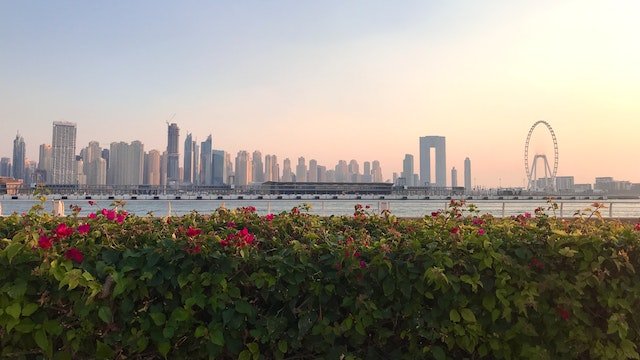
Indian passport holders who wish to visit or settle in Dubai from India must first obtain a visa through a sponsor. This may appear to be a difficult task, but it is actually rather simple. You can know more about this when you book a hotel and apply for a visa via a travel agent.
You can acquire a 14-day visa on arrival if you hold a valid USA visa or green card, or a valid UK or European Union residence visa (valid for at least six months after your date of admission into the UAE).
When moving to Dubai, there are several types of UAE visas to consider. Make sure your passport is valid for at least six months after your relocation. The different types of Visas are:
- Employment Visa: This is the most popular sort of visa, in which your company arranges for your employment visa and residency permit. You can also check your UAE visa status online once you have received your UAE residence visa.
- Dependent Visa:
- If your spouse is already in Dubai, you are eligible for a dependant visa. To sponsor you, they must earn a minimum of AED 4,000 per month (or AED 3,000 per month plus accommodation).
- If your children live in Dubai, they must earn a minimum of AED 20,000 per month in order to sponsor you.
- If your parents want to sponsor you, you must be unmarried and under the age of 18 (or a student).
- Student Visa: If you are enrolled in one of the UAE universities or academic institutions, you will be granted a visa for the duration of your education.
- Investors Visa: An Investor visa is available if you start or invest in a business in the UAE. There are several sorts of Dubai investor visas to choose from. To know more about the requirements, documents, and criteria for an investor visa.
- Property Owner Visa: If you invest in a property in Dubai, you are eligible for a renewable residency visa. However, the benefits of these visas (dependents, etc.) do vary.
Documents Required for Moving from India to Dubai

When it comes to settling in Dubai from India, the majority of the work will be handled by your employer. However, you must ensure that you have all of your documents in order.
Before you move, you must have your Indian university degree or certificate attested. Once you’ve moved to Dubai, this process might be time-consuming and inconvenient. There are four steps to getting your degree attested, should you wish to do it yourself.
- First, get your paperwork stamped at your university. Call ahead to find out what documents you will require. You might have to bring in mark sheets and high school certificates. Depending on your field, you might also need attestation from your field’s registered regulatory board. This will require payment from your side.
- After that, you’ll require HRD (human resources development) certification. For this, go to your state’s HRD office or recognized centre. There is no price if you go to the HRD office directly, however, you must bring documentation such as high school transcripts and a passport-size photo (varies by state).
- To receive the attestation stamp on all documents, go to the Ministry of External Affairs (MEA) in Delhi (or employ a registered agent).
- Finally, you need an approval stamp from the UAE Embassy.
- If you’re travelling as a married couple, make sure you get your marriage certificate attested.
- You will need a good conduct certificate from India before applying for a work visa.
- Bring several passport-sized photos (white background). You’d be surprised how many you’ll need to apply for everything from visas to other licenses.
Finding Accommodation in Dubai
Dubai’s property market is booming, with a wide range of possibilities to suit all budgets and real estate preferences. Decide whether renting or buying a home is best for you before signing the paperwork.
Renting a Property in Dubai
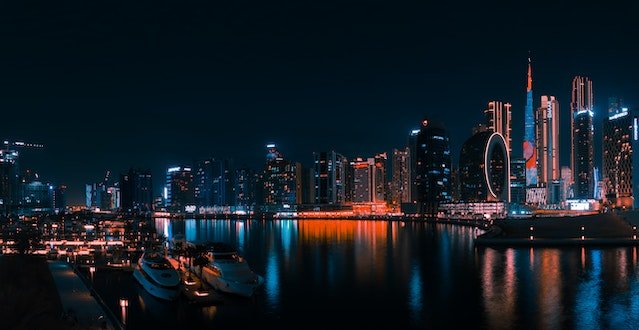
Several first-time ex-pats in Dubai rent apartments. When it comes to money, it’s easy to go overboard and be swayed by prominent addresses or views of the Burj Khalifa. However, a decent rule of thumb is to not spend more than 35% of your monthly salary on rent.
Renting affordable flats in Dubai might help you save a lot of money. You may also learn more about popular regions for Indian ex-pats!
It’s also worth noting that in Dubai, rent is paid with yearly or quarterly checks. DEWA utilities (your power and water), internet/phone deposits, agency commissions, and security deposits will all require payments.
Make sure you’ve set aside enough money! It’s also a good idea to familiarize yourself with Dubai’s tenancy regulations to avoid any unpleasant surprises!
Buying a Property in Dubai

Dubai’s real estate market is likewise thriving, with various appealing incentives for purchasers. Homeownership is popular in Dubai, with villas and townhouses in well-established neighbourhoods such as Arabian Ranches, apartments in Dubai Marina, and off-plan projects with imminent handover dates.
Indians are the largest group of foreigners investing in Dubai real estate. If you’re concerned about your stay in Dubai, remember that you can always rent out your property after you depart, providing a valuable additional source of income and even entitling you to a residence visa based on the size of your property purchase.
Education for Indians in Dubai

Whether you want your child to study in an Indian curriculum school or any other, there are many options:
- In an international school in Dubai, your child will have the opportunity to interact with students from all over the world.
- In addition to international schools, there are numerous Indian schools in Dubai (providing ICSE and CBSE) located around the city and within easy reach of every neighbourhood.
- The cost of education in Dubai varies depending on the facilities and courses available.
- Some of the best schools in Dubai fill up fast across all year groups. We strongly recommend applying for a place well before you reach the city – even if you plan to relocate during summer!
- Indian schools begin classes in April, while most international institutions begin classes in September. Children can generally join in the second semester, depending on when you’re relocating.
Food for Indian Expats in Dubai
Indian restaurants are available across Dubai. One thing you won’t want to miss in the city is Indian cuisine! Restaurants in Dubai serve food from all over India, from street-side chaat and biryani to Jain food and South Indian thalis.
The majority of restaurants are concentrated in the ‘old Dubai’ districts of Karama, Bur Dubai, and Deira. However, there is an Indian restaurant near you no matter where you live. In Downtown Dubai, for example, there are some fantastic Indian restaurants. Similarly, Indian eateries in Dubai cater to a wide range of budgets.
If you’re looking for groceries, there are many supermarkets in Dubai that cater to ex-pats and stock local goods. Al Adil Supermarket carries a wide range of items and brands that are familiar to Indian shoppers. LuLu Hypermarket is a popular choice among Indian ex-pats in Dubai for fresh products. You’re likely to find shops that rival those back home when it comes to fresh sweets!
So, if you’re relocating from India to Dubai, don’t worry about not being able to eat your favourite foods. For Indians, life in Dubai will be somewhat similar to life back home, at least in terms of food.
Healthcare for Indian Expats in Dubai

Here’s what you need to know about health services in Dubai.
- There is no single public health service in Dubai. Every sponsor is responsible for providing health insurance to the people to whom they issue visas. This implies you are responsible for providing medical insurance to your spouse or children if you are sponsoring them. Some employers also provide insurance for dependents.
- Check the UAE government’s list of prohibited substances before bringing any medications to Dubai. If you have a doctor’s note with you, some medications may be exempted. Remember that some drugs available over the counter in India may be controlled in Dubai, and bringing them in could result in complications.
- Because of the large number of clinics and hospitals in Dubai, obtaining a prescription – albeit under a different brand name – will be a quick and straightforward process.
Getting Around in Dubai
The public transport system in Dubai is one of the best in the world. Buses, the Dubai metro, and taxis are all well-established modes of public transportation in Dubai. Naturally, buses are the most affordable mode of transportation, followed by the metro and finally taxis.
While the metro is one of the most convenient methods to get around the city, it only runs in one direction and may not be practical depending on where you reside.
Popular areas like Arabian Ranches, for example, are far from the nearest metro station and rely on feeder buses. If you want to commute using the Dubai Metro, there are numerous suitable apartments near metro stations.
If you want to rent or buy a car to move around, you’ll need to apply for a Dubai driver’s license and take training. The amount of classes you must take is determined by the length of time your license has been valid. When applying for the license, keep in mind that the vast majority of private light motor vehicles in Dubai are automatic rather than manual.
Conclusion
Indians have numerous reasons to relocate to Dubai. However, Dubai’s laws, culture, and lifestyle differ slightly from those in India, which may provide teething problems for Indians looking to relocate there.
This is why you must continue to learn more about the location. Obviously, the more knowledgeable you are about Dubai’s numerous elements, the faster you will be able to acclimate to the city.
One last piece of advice: if you have no idea where to begin, contact ZāZEN Properties at +97150 170 9376 for more information. ZāZEN Properties has delivered its first sustainable community development in the established Jumeirah Village Triangle community of Dubai, with over 85% already sold.

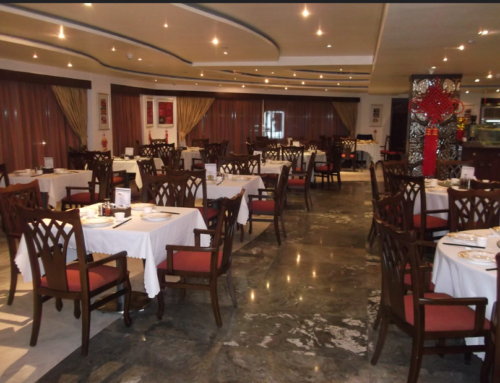
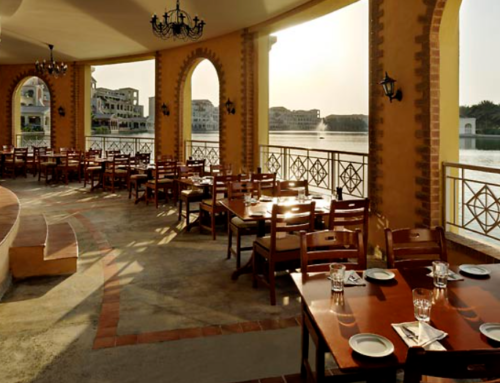

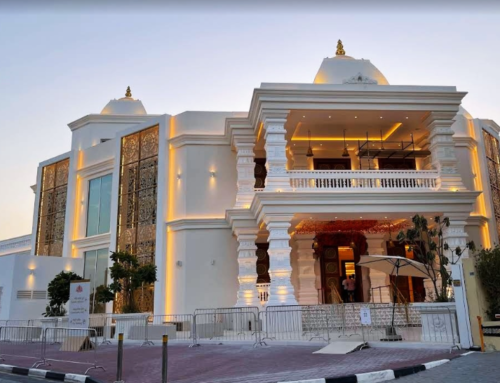
Leave A Comment